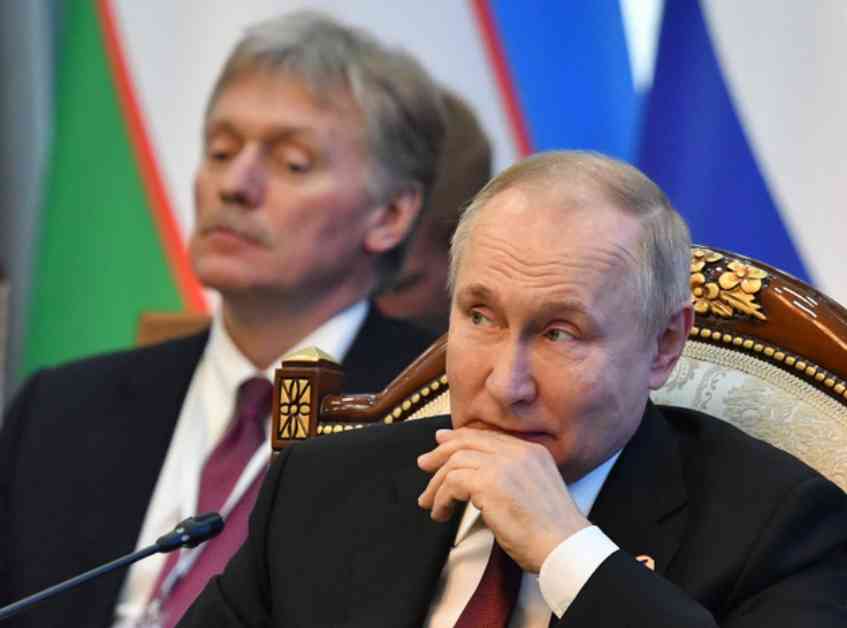Russian President Vladimir Putin and Kremlin officials are showing no signs of softening their stance in the ongoing conflict in Ukraine, according to a recent report by the Institute for the Study of War (ISW). Despite failing to achieve military victory over the past three years, Putin and his cohorts remain committed to their original war aims of ‘denazifying’ and ‘demilitarizing’ Ukraine, as well as preventing Ukraine from joining any security alliances in the future. This unwavering position has been underscored by recent statements from Putin, which suggest a lack of interest in pursuing a peace agreement with Ukraine and a willingness to prolong the conflict indefinitely.
Putin’s Rejection of Peace Talks
In their analysis, ISW experts highlight Putin’s clear signal to both the Russian military and society that he intends to continue the war until Ukraine surrenders completely. Despite occasional gestures towards peace negotiations with Western leaders, Putin’s actions paint a picture of a leader unwilling to compromise on Russia’s longstanding objectives in the region. This was evident in the Kremlin’s formal rejection of any ceasefire that did not entail Ukraine’s total capitulation, a stance that was reiterated just days ago.
During recent discussions with U.S. President Donald Trump, Putin seemed taken aback by the suggestion of European troops serving as peacekeepers in Ukraine as part of a potential ceasefire agreement. Trump’s claims that Putin had no objections to this proposal were met with skepticism by the Russian leader, further underscoring the lack of common ground between the two sides. The Kremlin’s response to these assertions has been terse, with spokesperson Dmitry Peskov referring reporters to previous statements made by the Russian foreign minister.
Russian Demands and Public Opinion
Russian Foreign Minister Sergei Lavrov has been vocal about Russia’s conditions for ending military activities in Ukraine, emphasizing that any peace deal must align with Russia’s strategic interests and address the realities on the ground. Central to Russia’s demands is the inclusion of provisions that prevent Ukraine from joining NATO in the future, a non-negotiable point for the Kremlin. The insistence on Ukrainian forces withdrawing from certain territories is framed as a compromise by Russian officials, despite the reluctance of Western powers to accept these terms.
Recent polling data from Russia suggests a growing sentiment among the populace in favor of continued military action in Ukraine until complete Ukrainian capitulation is achieved. However, there are signs that the economic impacts of the prolonged conflict are beginning to take a toll on ordinary Russians. A survey conducted by an independent Russian opposition polling organization revealed a split in public opinion regarding the withdrawal of Russian troops from Ukraine, with a significant portion of respondents expressing concerns over the war’s negative effects on their daily lives.
As tensions persist and diplomatic efforts falter, the prospect of a lasting peace agreement in Ukraine remains elusive. Putin’s uncompromising stance, coupled with the divergent perspectives on the conflict within Russian society, underscores the complexities inherent in resolving one of Europe’s most enduring geopolitical crises.
Kyiv Post, Ukraine’s premier English-language news outlet, will continue to provide comprehensive coverage of developments in the region, offering a unique window into the ongoing challenges and dynamics shaping the conflict in Ukraine.

















